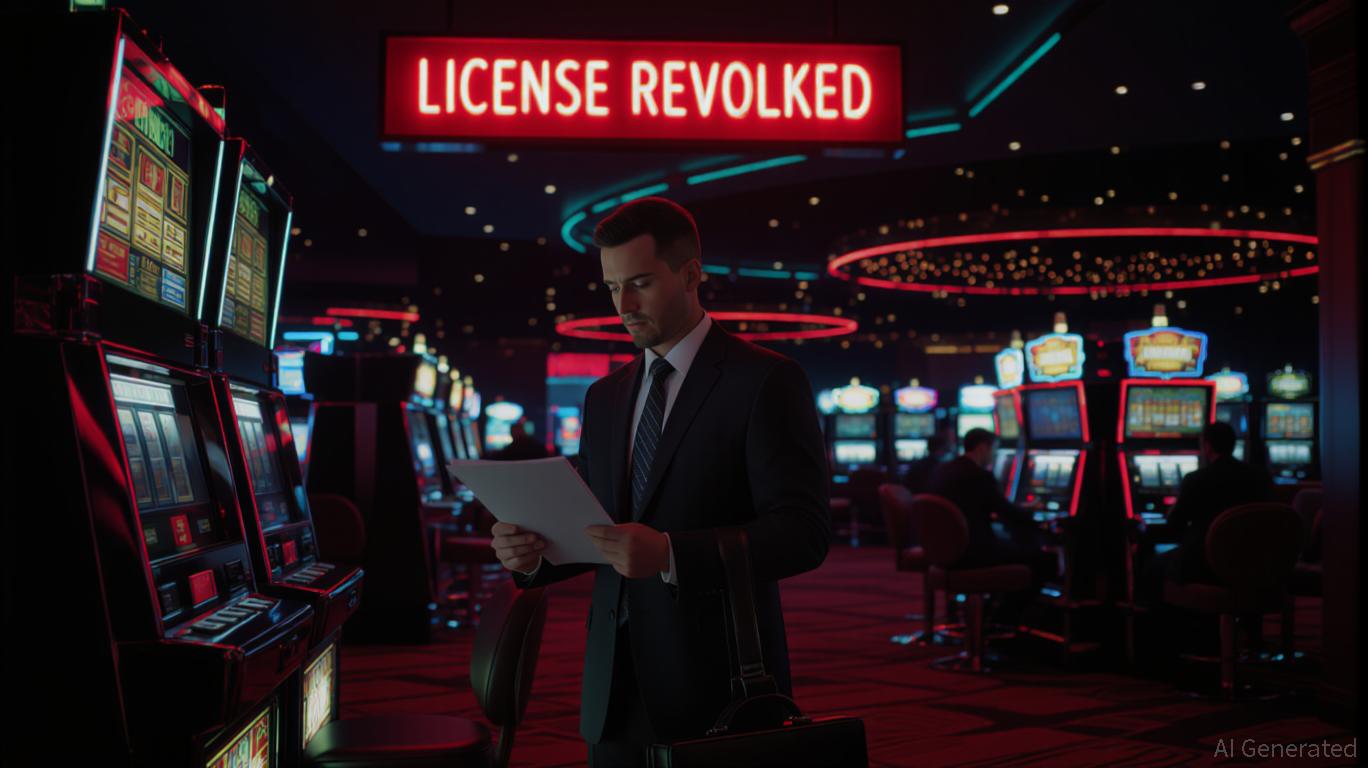
In the world of investing, few industries operate under as much scrutiny as alcohol and gaming. These sectors, long associated with vice and volatility, now face a new reckoning: the intersection of regulatory risk and ESG (Environmental, Social, and Governance) alignment. Over the past five years, a series of high-profile cases has exposed the financial and reputational toll of criminal-linked business owners and systemic compliance failures. For investors, the message is clear: ESG alignment is no longer optional—it is a survival mechanism.
The Cost of Non-Compliance: A Five-Year Retrospective
The gaming and alcohol industries have seen a surge in regulatory enforcement, driven by anti-money laundering (AML) failures, lax oversight of criminal affiliations, and inadequate responsible gambling protocols. Consider the case of Resorts World Las Vegas, where former executive Scott Sibella’s failure to report illegal gamblers—including a convicted bookmaker—led to a 31-page disciplinary complaint from Nevada regulators. The company’s culture of neglect, as described in the Nevada Gaming Control Board’s filing, resulted in a license revocation threat and a reputational black eye. Similarly, Wynn Resorts paid $130 million to resolve a decade-old investigation into its ties to Chinese money-laundering networks, a penalty that underscored the cost of ignoring AML protocols.
In Australia, Crown Resorts and Star Entertainment faced fines totaling hundreds of millions of dollars for enabling money laundering by organized crime groups. These cases are not isolated. From Wisconsin gas stations operating illegal gambling machines to European operators linked to murder investigations, the pattern is consistent: non-compliance with regulatory standards leads to severe financial penalties, license suspensions, and long-term brand erosion.
ESG Alignment: A New Metric for Risk Assessment
For ESG-conscious investors, these incidents highlight a critical governance risk. Companies that fail to enforce robust compliance programs or allow criminal-linked individuals to hold sway over operations are not just violating laws—they are eroding trust in their corporate governance. The UK Gambling Commission’s record £19.2 million fine against William Hill Group in 2023, for instance, was not merely a financial hit but a signal to stakeholders that the company’s internal controls were inadequate.
The reputational damage from such violations is equally corrosive. When The Hellenic Club of Canberra was fined $832,406 for failing to track problem gambling incidents, the incident sparked public outrage and calls for stricter oversight. For investors, this underscores a broader truth: ESG misalignment can translate into declining consumer trust, regulatory scrutiny, and, ultimately, shareholder value.
Investment Implications: Navigating the Regulatory Minefield
The data is unequivocal. In 2025 alone, global fines for gaming operators reached $167.7 million, with Spain, the U.S., and Lithuania leading the charge. These penalties are not just one-time costs—they are symptoms of systemic weaknesses. For example, MGM Resorts and Resorts World Las Vegas were fined $8.5 million and $10.5 million respectively in 2025 for allowing illegal sports bookmakers to operate within their premises. Such lapses suggest a failure to prioritize compliance over short-term profits, a red flag for ESG investors.
Investors must also consider the human cost. The Matthew Gaskell thesis on gambling disorder, which links addiction to financially motivated crimes, adds a social dimension to the risk. Companies that ignore responsible gambling frameworks not only face regulatory penalties but also contribute to societal harm—a factor that ESG metrics increasingly weigh.
Strategic Recommendations for ESG-Compliant Investing
- Prioritize Governance Transparency: Invest in companies with publicly disclosed compliance programs, independent audits, and executive accountability. For example, operators that voluntarily adopt the UK Gambling Commission’s Safer Gambling Standards demonstrate a commitment to ESG principles.
- Avoid High-Risk Jurisdictions: Regulatory environments vary widely. Firms operating in regions with weak enforcement (e.g., certain European markets) face higher ESG risks. Conversely, companies in jurisdictions with strict AML and responsible gambling laws (e.g., Nevada, the UK) are better positioned to weather scrutiny.
- Monitor ESG Scores Dynamically: Use ESG ratings to track changes in corporate behavior. A sudden drop in a company’s score—such as Las Vegas Sands Corp.‘s $47 million fine in 2013—can signal underlying governance issues.
- Engage in Shareholder Activism: Push for board-level oversight of compliance and ESG initiatives. Investors with significant stakes can advocate for policies that align with long-term value creation.
Conclusion: The Future of ESG in Alcohol and Gaming
The alcohol and gaming sectors stand at a crossroads. As regulators close the net on criminal-linked operations and AML failures, the cost of non-compliance will only rise. For investors, the lesson is clear: ESG alignment is not a buzzword—it is a financial imperative. Companies that fail to adapt will find themselves on the wrong side of both regulators and capital markets.
In this high-stakes environment, the winners will be those who treat ESG not as a checkbox but as a core business strategy. The losers? Those who bet on short-term gains while ignoring the long-term risks of regulatory and reputational collapse.
